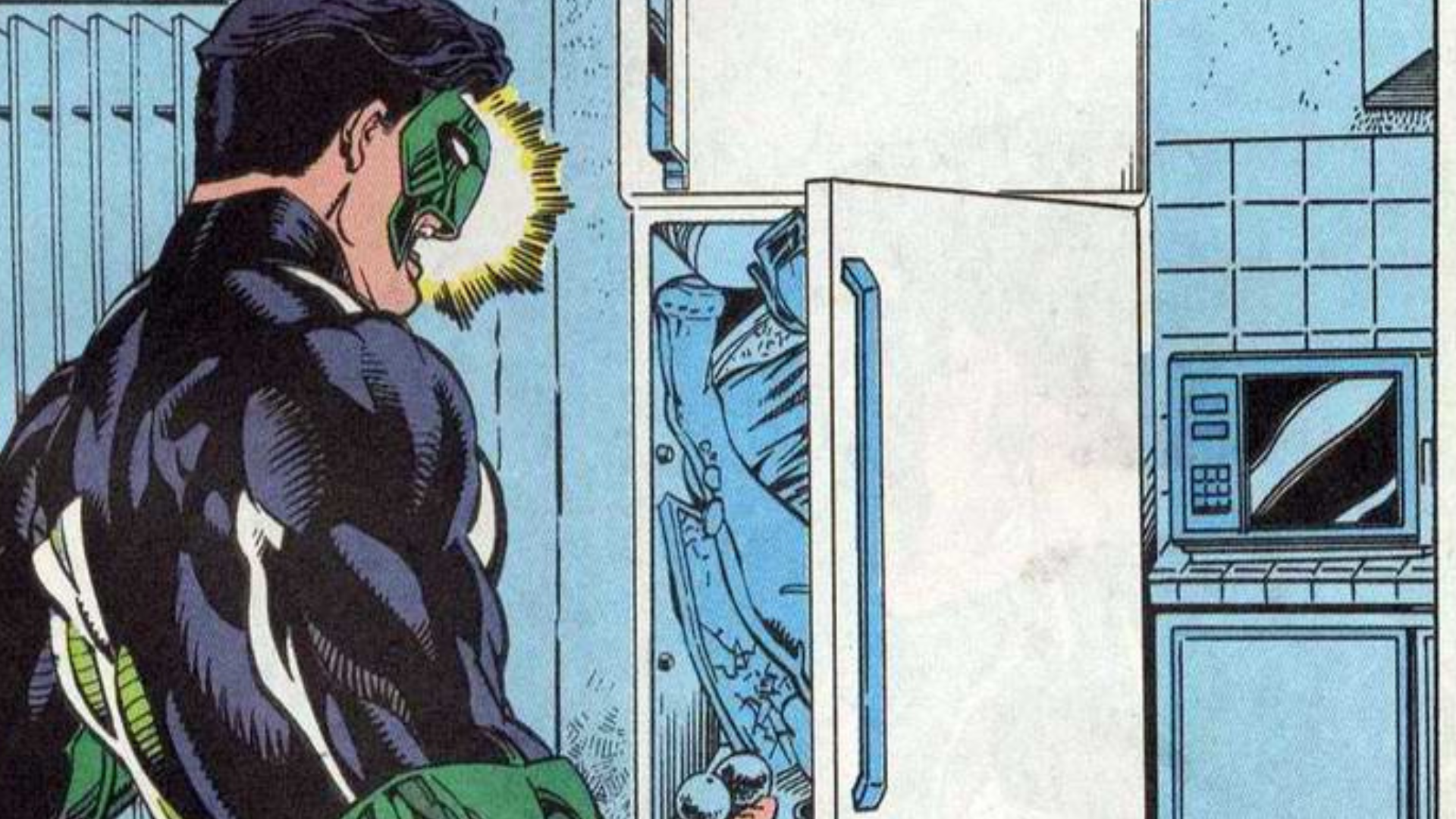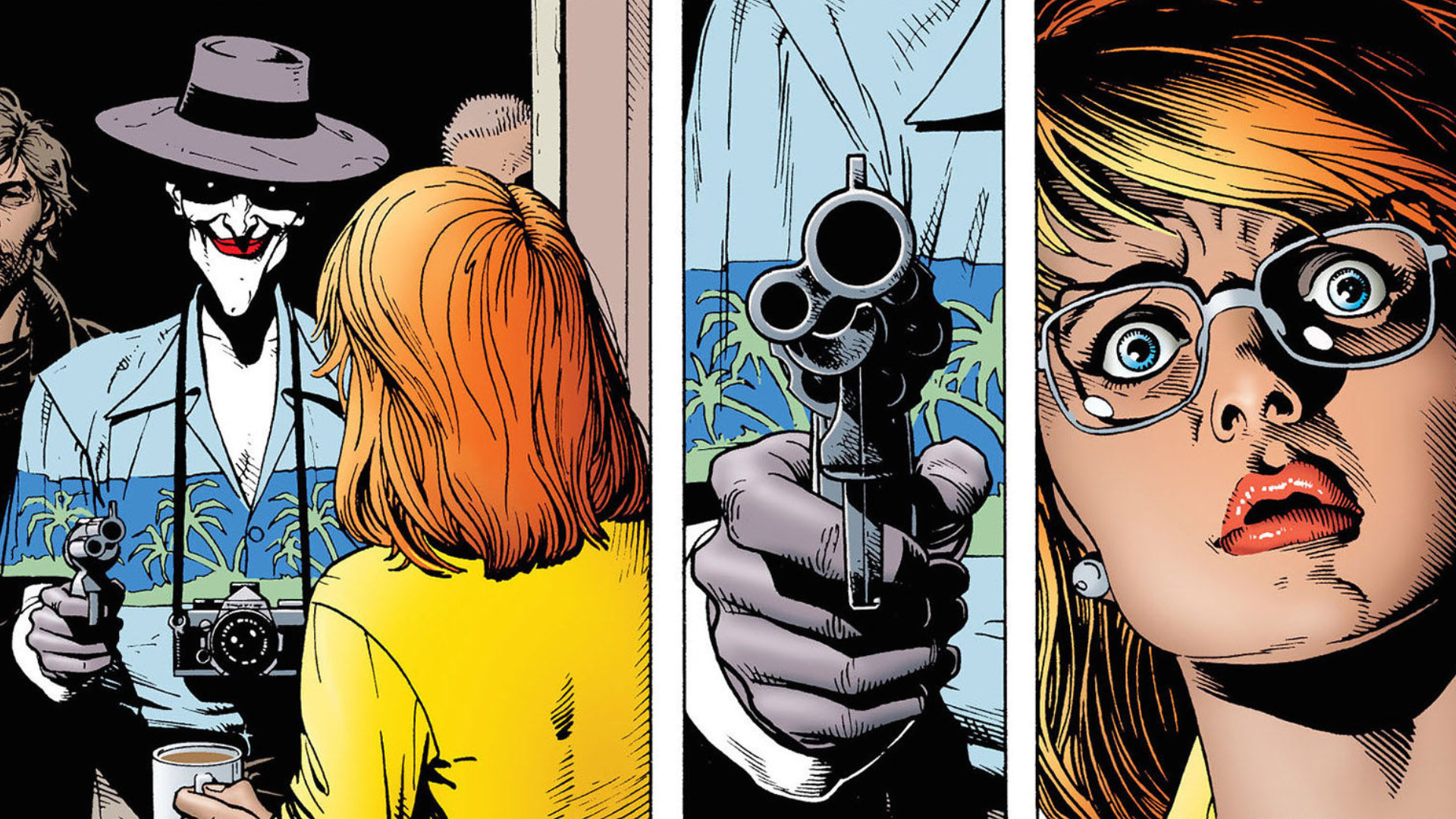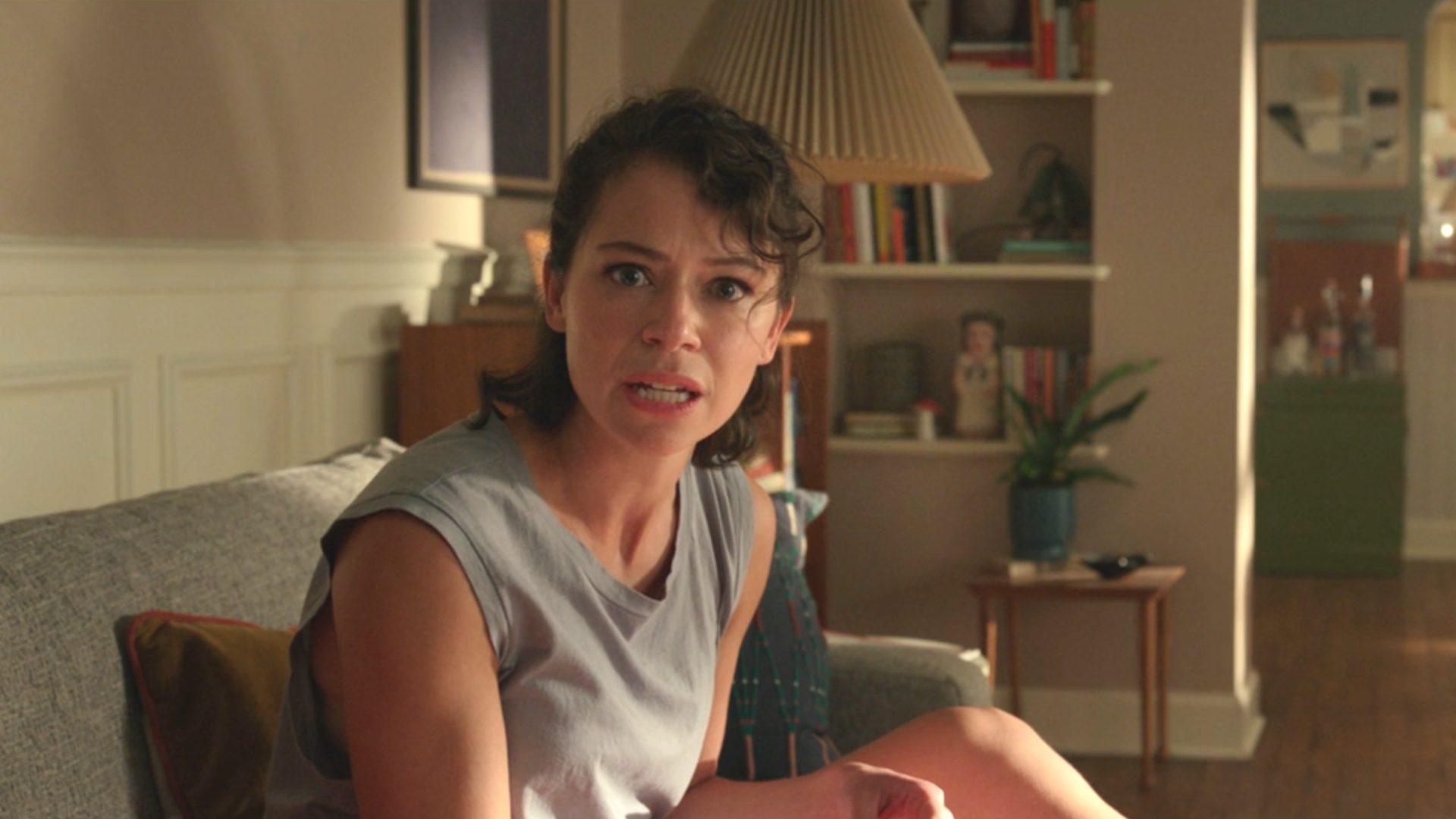She-Hulk's "fridged" comment - the comic book history of the 'Women in Refrigerators' trope
You may have missed it, but She-Hulk episode 8 references the 'Women in Refrigerators' trope, which was named by comic writer Gail Simone in 1999

She-Hulk: Attorney at Law tackles sexism in several forms throughout its first season, which wraps next week on Disney Plus. And in true Marvel Comics fashion, protagonist Jennifer Walters (played by Tatiana Maslany) breaks the fourth wall to talk to the audience and commentate on the action in several scenes.
In episode 8, "Ribbit and Rip It," which features Daredevil's first costumed MCU appearance (played by Charlie Cox), Jen breaks the fourth wall right before the final scene and questions why the episode needs to keep going. Then she "realizes" the next episode is the season finale and asks an important question.
"This is the big twist, isn't it? But the question is, is it the kind of twist that's like, 'There's another Hulk, but this one's red,' or like, 'I'm getting fridged'?" she asks. (And then Ginger Gonzaga's Nikki jumps into the frame with makeup brushes held like Wolverine's claws, complete with a 'snikt' sound, but that's for another time.)
Many MCU fans might have thought "fridged" was a newer pop culture term they didn't immediately recognize, but it's actually a 20-plus-year-old term describing a comic book trope familiar to hardcore comic book fans in keeping with She-Hulk's meta-textual commentary.
Jen's "getting fridged" comment is rooted in the streaming show's continuous examination of sexism and violence against women superheroes.
Here's the comic book history of the "Women in Refrigerators" trope, explained.
The origin of 'Women in Refrigerators'

Comics writer Gail Simone coined the term "Women in Refrigerators" in 1999, both as the name for a common trope she and other comic book fans had identified in superhero stories and as the name for a website where this trope could be discussed.
Get the best comic news, insights, opinions, analysis and more!
"Women in Refrigerators" refers to a scene in 1994's Green Lantern #54, written by Ron Marz and drawn by Steve Carr, Derec Aucoin, Darryl Banks, and Romeo Tanghal, in which Kyle Rayner's girlfriend Alexandra DeWitt is literally stuffed into a refrigerator after the villain Major Force murders her.
More broadly, the term describes the trope where women in comics are sexually assaulted, injured, murdered, or depowered as a plot device intended to motivate their male counterparts to take action or otherwise move forward in their own story. The women in these stories aren't treated as people, but as disposable objects whose sole purpose is stimulating growth in their male love interests. Sometimes, this trope is also used for male family members and friends, but it is most often linked to romance.
Some of the most famous examples of the "Women in Refrigerators" trope include the death of Gwen Stacy in The Amazing Spider-Man #121-122 (1973), written by Gerry Conway and drawn by Gil Kane, John Romita Sr., and Tony Mortellaro, wherein she's killed by the Green Goblin, and Peter Parker becomes even more committed to his responsibilities as Spider-Man because he fails to save her; the death of Karen Page in Daredevil #5 (1999), written by Kevin Smith and drawn by Joe Quesada and Jimmy Palmiotti, in which Bullseye attempts to kill Daredevil and Karen steps between them, then dies in Matt's arms; and the attempted murder of Barbara Gordon in Batman: The Killing Joke (1988), written by Alan Moore and drawn by Brian Bolland, in which the Joker shoots Babs and paralyzes her, then uses photos of her nude, wounded body to torture her father, Commissioner Jim Gordon.
Although it's rare for characters to remain dead in comic books - see, for example, the return of the Justice League in Dark Crisis on Infinite Earths, or the Resurrection Protocols in the current X-Men era that allow mutants to be brought back over and over - women are more often harmed for the sake of men's plot lines than for any other reason, even 23 years after Simone coined the term "Women in Refrigerators."
Why She-Hulk: Attorney At Law references 'Women in Refrigerators'

If it weren't for the fact that She-Hulk: Attorney At Law is so clearly Jennifer Walters' story, we could argue that she has already been "fridged." In season 1, episode 7, Jen has sex with a guy she's dating named Josh (played by Trevor Salter), who turns out to be a member of the villainous Intelligencia. He films them being intimate, and the video is included in a coordinated attack on She-Hulk at a gala where she and several other women are awarded "Female Lawyer of the Year."
Although Jen consents to sex with Josh, she doesn't consent to being filmed or to having that footage put online or shared with the public. This is an example of revenge porn, which is a form of sexual violence.
So, when Jen rhetorically asks the audience if she's going to be "fridged" at the end of She-Hulk: Attorney At Law episode 8, she's technically predicting the "twist" she's talking about - and taking a shot at inverting the very trope that's being invoked, by stating her own awareness (and by extension the awareness of the actors and creators of the show) of how a traumatic experience may serve to escalate her own narrative rather than someone else's.
In this way, it makes sense for She-Hulk to reference "Women in Refrigerators." The streaming series has put a lot of focus on sexism in the comics industry and superhero world, both in real life and in the MCU. For example: To illustrate the backlash against Jen becoming a Hulk in the show, episode 3 used actual comments left on Marvel's social media from when it announced the MCU She-Hulk series in 2019.
So rather than simply engaging in what could be an almost by-the-numbers example of the "fridging" trope, She-Hulk seems to be commenting on its use and prominence in superhero media of all types over the decades, and pointing out just how devastating putting "women in refrigerators" can actually be.
If you're unfamiliar with She-Hulk's comic book origin and powers, see Newsarama's explainer for details.

Samantha Puc (she/they) is an editor at Newsarama and an avid comics fan. Their writing has been featured on Refinery29, Bitch Media, them., The Beat, The Mary Sue, and elsewhere. She is currently pursuing a Master of Fine Arts degree in creative nonfiction at The New School.


